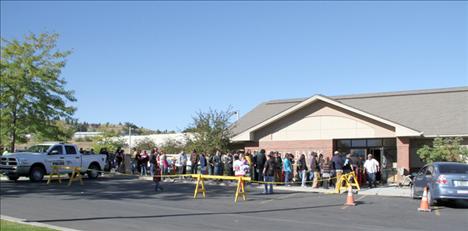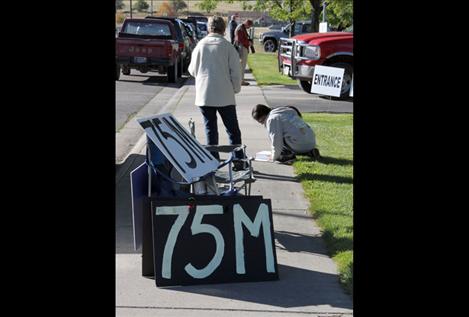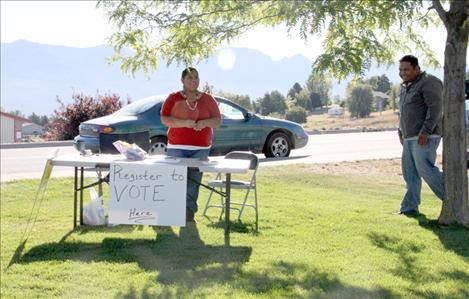Tribal members receive Salazar money
Hey savvy news reader! Thanks for choosing local.
You are now reading
1 of 3 free articles.
MISSION VALLEY — The line at Eagle Bank was long on Sept. 12 as members of the Confederated Salish and Kootenai Tribes received their payouts from the Salazar settlement.
On April 11, the federal government announced settlement of the Nez Perce Tribe, et al, v. Kenneth L. Salazar, Secretary of the Interior, et al, suit. The settlement was for money lost in mismanaged accounts and from royalties for oil, gas, grazing and timber rights on tribal lands that tribes did not receive.
The CSKT received approximately $150,126,000, and the CSKT Tribal Council elected to distribute about half of the settlement money. Each tribal member received $10,000. Plans for the funds from people ranged from a new car to college tuition to a new roof.
The CSKT were one of 41 tribes involved in the case. Other Montana tribes were the Blackfeet, the Sioux and Assiniboine, the Chippewa Cree and the Northern Cheyenne.
CSKT Tribal Council has been under fire from a group called The People’s Voice that wants all of the money distributed directly to tribal members.
“A better working relationship between the council and the people is really our goal,” explained Sharon Rosenbaum, a member of the People’s Voice.
The group collected signatures on a petition to ask council to distribute all the Salazar money to tribal members outside Eagle Bank on Sept. 12. With those signatures and others, the People’s Voice has about 800 signatures. When the number of tribal signatures reaches 1,400, they plan to send the petition to the Bureau of Indian Affairs, according to group member Agnes GunHammer.
As well as the Salazar settlement, the people have a lot of complaints, GunHammer said, such as jobs for people on the reservation and hiring them first.
No decisions have been made by the CSKT Tribal council on what to do with the remaining money, CKST Information Officer Rob McDonald said.
Tribal Council met with tribal members in all eight districts from April to August to solicit comments. They actively queried tribal members through the Char-Koosta and also asked for email input since some people aren’t comfortable speaking in council. Individual council members also collected comments, McDonald said.


















